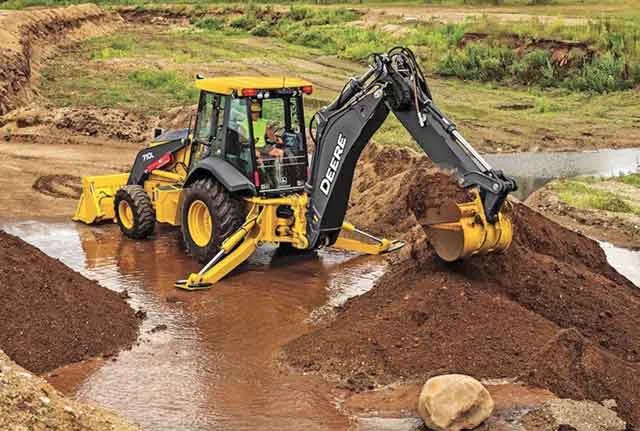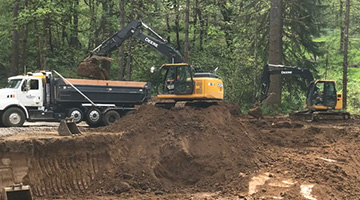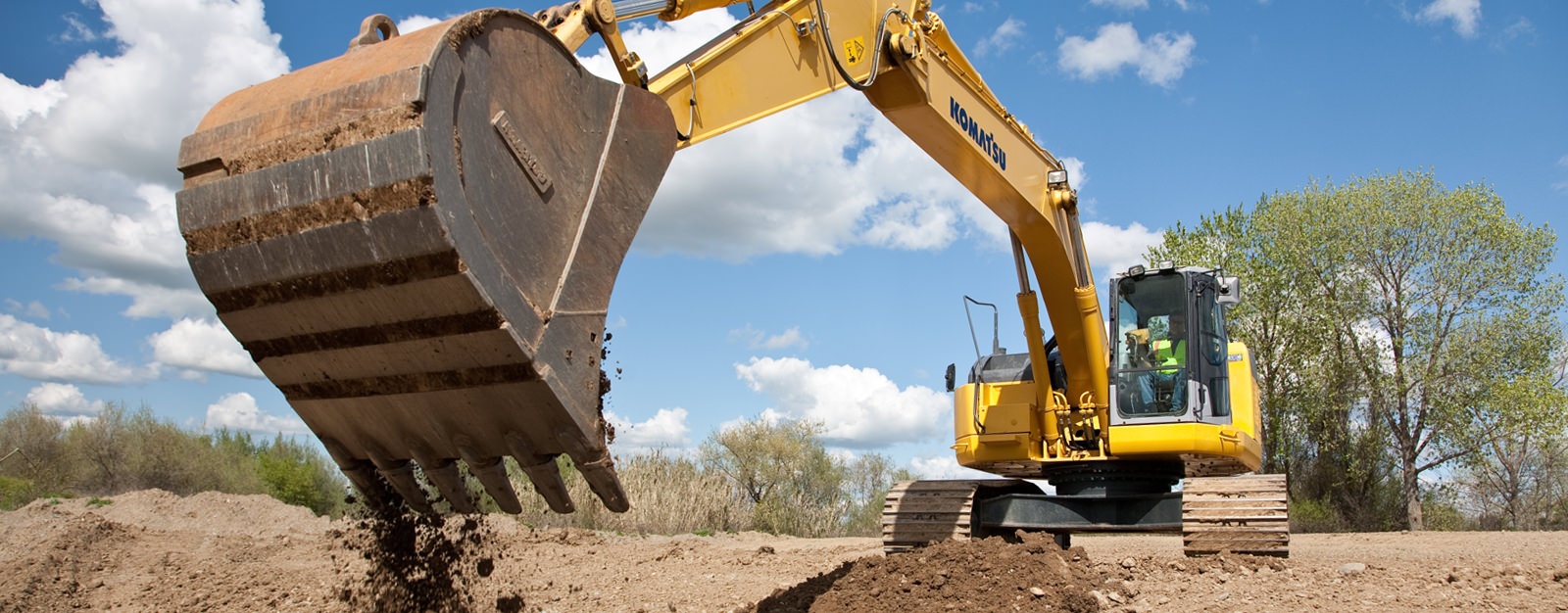Lancaster Trenching - Specialist Trenching Solutions in Lancaster, Ohio
Lancaster Trenching - Specialist Trenching Solutions in Lancaster, Ohio
Blog Article
Comprehensive Excavation Methods: Grasping the Principles for Success
In the realm of building and civil engineering, the relevance of efficient excavation techniques can not be overemphasized. The careful preparation, exact execution, and thorough attention to information required in excavation jobs require a detailed approach that encompasses numerous basic elements. From initial dirt evaluation to the application of precaution and regular progress monitoring, understanding these core components is crucial for attaining success in any excavation endeavor. The true proficiency lies not simply in comprehending these basics but in seamlessly integrating them to browse the intricacies of excavation tasks with finesse.
Understanding Excavation Project Planning

The first phase of any kind of excavation project is the preparation phase, where essential decisions are made that can dramatically affect the outcome of the project. Understanding the project budget plan, range, and timeline constraints is critical for creating a detailed excavation strategy that guarantees the job's success.
One key facet of excavation job planning is the development of a thorough timeline that details the series of target dates, tasks, and milestones. This timeline works as a roadmap for the task group, allowing them to track development and make necessary modifications to make sure the project remains on schedule. Furthermore, a distinct budget that accounts for all expenses, consisting of tools rental, labor expenses, and products, is essential for preventing cost overruns and delays. By thoroughly considering all these variables throughout the preparation phase, excavation tasks can be executed successfully and efficiently, causing effective results.
Soil Evaluation and Website Analysis
Carrying out comprehensive dirt evaluation and website evaluation is a vital step in the preparation phase of any kind of excavation job. Soil evaluation entails establishing the composition, structure, and buildings of the dirt at the excavation site. This info is crucial for recognizing the dirt's bearing ability, wetness content, and possibility for erosion, which are crucial consider identifying the excavation methods and tools needed for the project.
Website examination exceeds soil evaluation and incorporates a more comprehensive assessment of the general website problems. This evaluation includes determining any type of possible threats, such as underground energies, environmental problems, or unpredictable terrain, that might impact the excavation process. By thoroughly reviewing the site, job supervisors can develop effective excavation strategies that prioritize safety, performance, and ecological defense.
Making use of sophisticated modern technologies like ground-penetrating radar, soil tasting, and drone studies can boost the precision and efficiency of dirt evaluation and website examination. Spending time and sources in these preliminary actions can ultimately conserve time and protect against costly delays or problems throughout the excavation process.
Devices Choice and Use
Efficient excavation tasks count heavily on tactical equipment option and application to ensure ideal performance and productivity. Picking the appropriate devices for the work is important in making best use of efficiency and minimizing downtime. Factors such as the type of soil, depth of excavation, and job extent play a substantial duty in establishing the most ideal equipment for the task available.

Along with picking the proper devices, appropriate use is crucial to project success. Operators must be trained to deal with the tools safely and effectively - lancaster excavation. Regular upkeep checks and prompt repair work assist prevent malfunctions and make certain additional info constant efficiency throughout the job
Safety Steps and Laws Compliance
In the world of excavation projects, prioritizing precaution and conformity with guidelines is vital to making certain a protected and lawfully audio functional environment. Precaution incorporate a range of techniques, including performing extensive site assessments, executing correct signage and obstacles, and providing adequate safety and security training for all workers associated with the excavation procedure. Adherence to laws, such as OSHA demands in the USA, ensures that the excavation task meets the necessary criteria to secure employees, onlookers, and the surrounding atmosphere.

Surveillance Progression and Adjusting Methods
Exactly how can project supervisors effectively track the development of excavation jobs and adapt their methods appropriately to enhance end results? Surveillance progress is essential for ensuring that excavation tasks stay on track and meet due dates.

Verdict
Finally, mastering the basics of comprehensive excavation methods is important for the success of any kind of job. By recognizing project planning, analyzing dirt and site problems, picking ideal equipment, adhering to safety guidelines, and monitoring progression, job managers can make sure a reliable and smooth excavation process. Carrying out these approaches will certainly cause effective end results and lessen potential risks or problems throughout have a peek at this site the excavation project.
The first phase of any type of excavation job is the preparation stage, where vital choices are made that can considerably impact the result of the job. Understanding the project extent, timeline, and budget restrictions is important for creating an extensive excavation plan that makes certain the project's success.
Exactly how can project supervisors effectively track the development of excavation jobs and adapt their approaches as necessary to maximize end results? By closely monitoring progression and being eager to adapt approaches, task supervisors can improve the total success of excavation jobs.
By comprehending project planning, analyzing soil and site problems, choosing proper tools, complying with safety and security laws, and keeping an eye on development, project supervisors can make sure a smooth and efficient excavation procedure.
Report this page